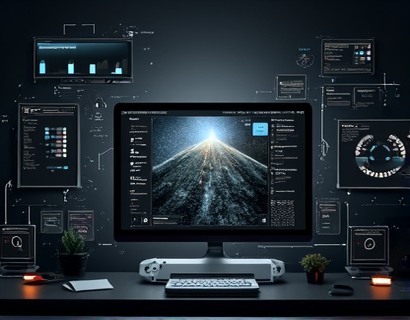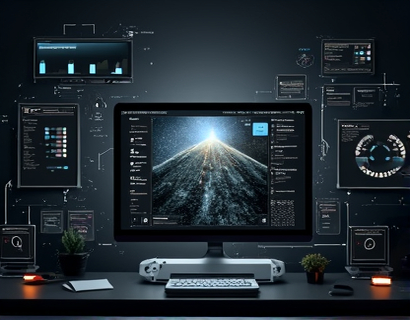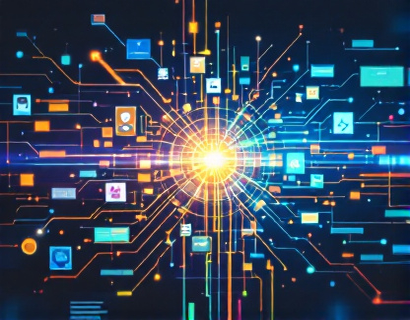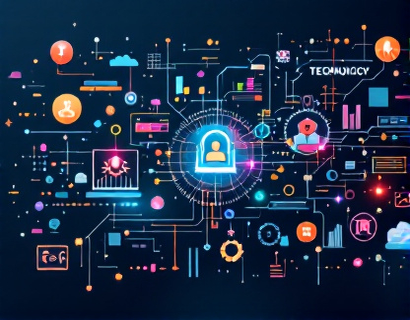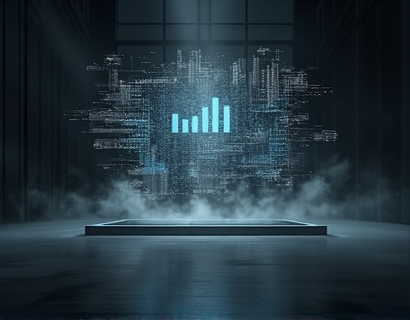AI-Driven Productivity Mastery: Harnessing Intelligent Insights for Personal and Professional Success
In the fast-paced world of today, achieving personal and professional success requires more than just hard work and dedication. It demands a strategic approach to managing time, tasks, and resources efficiently. The integration of Artificial Intelligence (AI) into productivity tools has revolutionized the way individuals handle their daily responsibilities, offering intelligent insights and tailored guidance to simplify decision-making and enhance productivity. This article delves into the transformative power of AI-driven personal assistance, exploring how these advanced tools can be a trusted companion in navigating the complexities of modern life.
The concept of an AI-driven personal assistant is not new, but recent advancements in machine learning and natural language processing have brought these tools to a new level of sophistication. These intelligent systems are designed to understand and predict user needs, providing personalized recommendations and automating routine tasks. By leveraging vast amounts of data, AI assistants can offer insights that are both context-aware and proactive, helping users make informed decisions and optimize their daily activities.
Understanding AI-Driven Personal Assistants
An AI-driven personal assistant functions as an intelligent agent that interacts with users to perform tasks and provide information. These assistants use a combination of algorithms and machine learning models to analyze user behavior, preferences, and environmental factors. The core components of such a system include natural language understanding, task management, and predictive analytics.
Natural language understanding allows the assistant to interpret and respond to user commands and queries in a conversational manner. This capability is crucial for creating a seamless user experience, as it enables users to interact with the assistant using everyday language. Task management involves organizing and prioritizing tasks based on urgency, importance, and user preferences. Predictive analytics plays a vital role in anticipating user needs and suggesting actions before the user explicitly requests them.
The integration of these components results in a powerful tool that can significantly enhance personal and professional productivity. By automating repetitive tasks and providing actionable insights, AI assistants free up valuable time and mental energy, allowing users to focus on high-value activities that drive success.
Benefits of AI-Driven Productivity Tools
The benefits of using an AI-driven personal assistant are manifold. Firstly, these tools improve time management by automating routine tasks such as scheduling appointments, setting reminders, and managing to-do lists. This automation ensures that users never miss important deadlines or appointments, reducing stress and increasing overall efficiency.
Secondly, AI assistants enhance decision-making through data-driven insights. By analyzing historical data and current trends, these tools can provide recommendations that are based on objective analysis rather than subjective judgment. This capability is particularly valuable in complex decision-making scenarios where multiple factors need to be considered.
Thirdly, AI-driven personal assistants foster better organization and prioritization. They can assess the importance and urgency of tasks, helping users to focus on what truly matters. This prioritization ensures that critical tasks are completed on time, while less important tasks are either delegated or postponed.
Lastly, these tools promote a healthier work-life balance. By handling mundane tasks and providing timely reminders, AI assistants help users avoid the trap of overwork and burnout. This balance is essential for maintaining long-term productivity and well-being.
Personal Productivity Enhancement
For individuals seeking to boost their personal productivity, an AI-driven assistant can be an invaluable ally. In daily life, managing personal tasks such as grocery shopping, household chores, and personal appointments can be time-consuming and stressful. An AI assistant can streamline these activities by creating personalized schedules, generating shopping lists, and even booking services like haircuts or car maintenance.
Moreover, these tools can assist in personal development by tracking progress towards goals and providing motivational prompts. For instance, an AI assistant can monitor fitness goals, suggesting workout routines and tracking progress. It can also offer tips for improving mental health, such as recommending mindfulness exercises or suggesting relaxation techniques.
In the realm of finance, AI assistants can help users manage their budgets, track expenses, and identify areas for cost savings. By providing real-time insights and alerts, these tools empower individuals to make informed financial decisions and achieve their financial goals.
Professional Productivity Boost
In the professional sphere, AI-driven personal assistants can significantly enhance productivity and efficiency. For busy professionals, managing emails, scheduling meetings, and organizing files are constant challenges. An AI assistant can automate these tasks, ensuring that emails are sorted and prioritized, meetings are scheduled optimally, and files are easily accessible.
In addition, these tools can assist in project management by providing overviews of ongoing projects, tracking milestones, and identifying potential bottlenecks. This overview helps professionals stay on top of their work and make timely adjustments as needed.
For remote workers and those in distributed teams, AI assistants can facilitate communication and collaboration. They can schedule virtual meetings, send reminders, and even translate messages in real-time, breaking down language barriers and enhancing team cohesion.
In creative industries, AI assistants can serve as brainstorming partners, generating ideas and suggesting innovative approaches to problems. By leveraging vast databases of information, these tools can provide insights that inspire creativity and drive innovation.
Case Studies and Real-World Applications
To better understand the practical applications of AI-driven personal assistants, let's explore a few real-world scenarios. In the field of healthcare, AI assistants can help patients manage chronic conditions by reminding them to take medication, schedule appointments, and track symptoms. This support system ensures that patients adhere to their treatment plans and maintain their health effectively.
In the education sector, AI assistants can assist students in managing their coursework and study schedules. These tools can provide personalized learning recommendations, highlight areas where additional study is needed, and even offer virtual tutoring sessions. This support can significantly improve academic performance and reduce stress.
In the corporate world, executives and managers can leverage AI assistants to stay organized and focused. These tools can summarize meeting notes, prepare action items, and provide real-time updates on project statuses. This level of organization is crucial for leaders who need to make strategic decisions and manage multiple priorities simultaneously.
Challenges and Considerations
While the benefits of AI-driven personal assistants are clear, there are also challenges and considerations to keep in mind. One primary concern is data privacy and security. These tools require access to personal data to function effectively, which raises questions about how this data is stored, used, and protected. Users must ensure that they choose reputable providers with robust security measures in place.
Another consideration is the potential for over-reliance on technology. While AI assistants can greatly enhance productivity, it's important to maintain a balance and not delegate all tasks to these tools. Users should continue to develop their own skills and decision-making abilities, using AI as a supportive tool rather than a replacement for human judgment.
Additionally, the effectiveness of AI assistants depends on their ability to understand and adapt to individual user preferences. This requires continuous learning and improvement, which can be resource-intensive. Users should be patient and give these tools time to refine their performance based on their specific needs and habits.
Future Trends in AI-Driven Productivity
The field of AI-driven productivity is rapidly evolving, with several exciting trends on the horizon. One such trend is the integration of augmented reality (AR) and virtual reality (VR) into productivity tools. AR and VR can provide immersive experiences that enhance learning, training, and collaboration, making remote work more engaging and effective.
Another trend is the development of more intuitive and empathetic AI assistants. Future tools will not only understand user commands but also recognize emotional states and provide appropriate support. This emotional intelligence can lead to more personalized and effective interactions, further enhancing the user experience.
Furthermore, the convergence of AI with other technologies like the Internet of Things (IoT) will create smarter environments that seamlessly integrate productivity tools into daily life. Smart homes, wearable devices, and connected appliances will work in harmony to optimize productivity and convenience.
Conclusion
AI-driven personal assistants represent a significant leap forward in productivity tools, offering intelligent insights and tailored guidance to help individuals achieve personal and professional success. By automating routine tasks, providing data-driven insights, and enhancing organization, these tools simplify decision-making and boost efficiency.
As the technology continues to evolve, the potential for AI assistants to transform how we manage our lives and careers is immense. Embracing these tools can lead to a more balanced, productive, and fulfilling life. Whether you're a busy professional, a student, or someone looking to improve your personal well-being, an AI-driven personal assistant can be a valuable companion on your journey to success.




